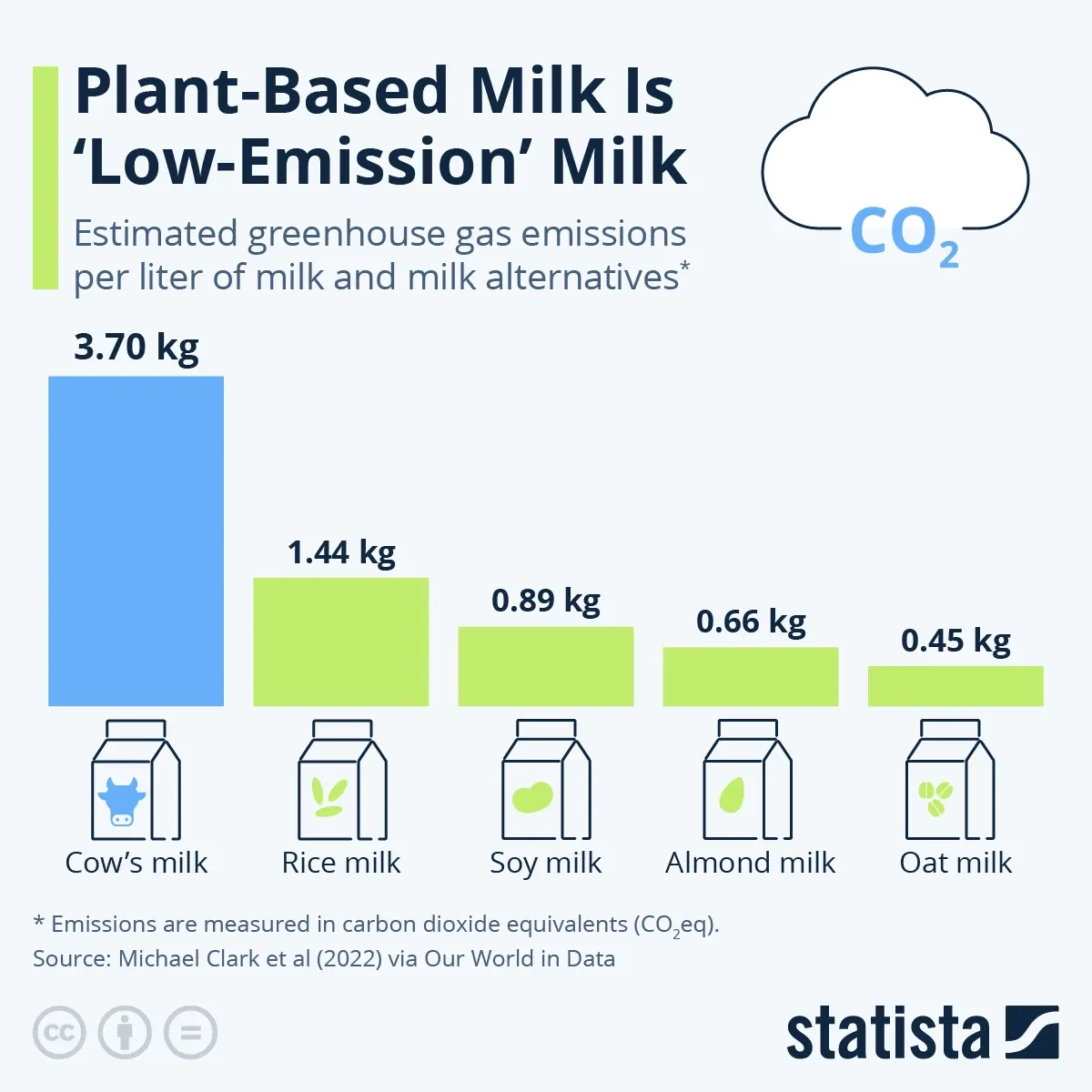Plant-Based Milk Is 'Low-Emission' Milk

Celebrated annually on August 22, World Plant Milk Day was established in 2017 to raise awareness about the environmental and health benefits of choosing plant-based milk alternatives over dairy milk. It encourages people to explore the variety of plant-based options, such as almond, soy, oat and rice milk, which are easier digestible for many people, especially those who are lactose intolerant, and have a lower environmental impact. Ultimately, the day is part of a broader movement aiming to promote a shift towards more sustainable and compassionate food choices.
Cow's milk has a significant environmental footprint, primarily due to the methane produced by cows, a potent greenhouse gas. Additionally, dairy farming requires substantial land, water and energy resources, further adding to milk’s high carbon footprint. According to research conducted by Michael Clark et al. published in 2022, producing a liter of dairy milk results in about 3.7 kg of CO2 equivalent emissions.
Plant-based milk alternatives, such as almond, oat, soy and rice milk, have a much lower emissions footprint. According to Clark et al., these alternatives emit between 0.45 (oat milk) and 1.44 (rice milk) kilograms of CO2 equivalent per liter, making them far more sustainable. By choosing plant-based milks, consumers can significantly reduce their greenhouse gas emissions, contributing to climate change mitigation and a smaller environmental impact of food consumption.